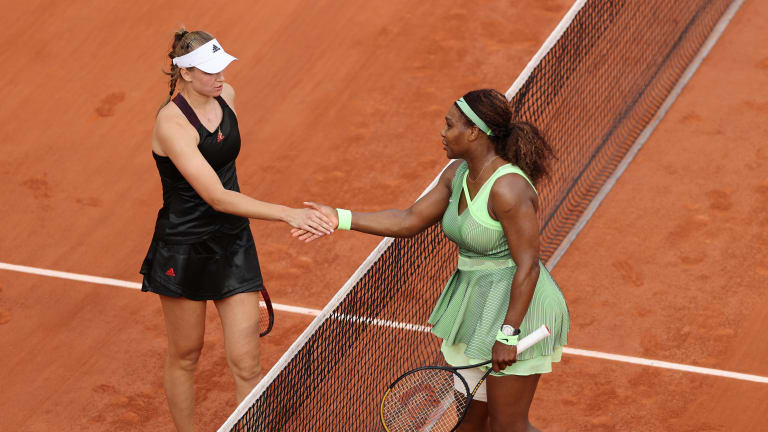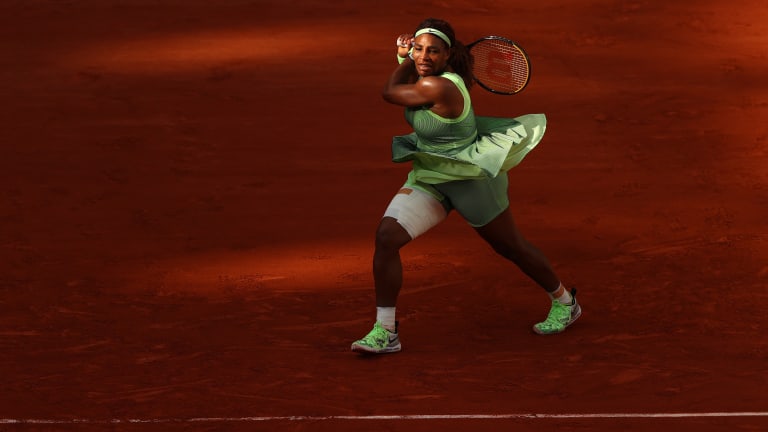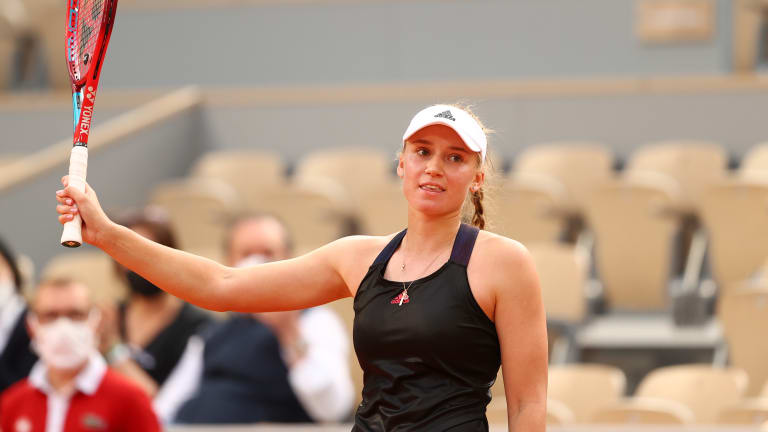Roland Garros
Serena Williams ousted in French Open's fourth round by a serene Elena Rybakina
By Jun 06, 2021Roland Garros
Rafael Nadal withdraws from French Open with hip injury; 2024 likely to be last year on tour
By May 18, 2023Roland Garros
French Open organizers give wild cards to veterans Paire and Mladenovic
By May 15, 2023Roland Garros
Novak Djokovic: 19 stats for his 19th Grand Slam title
By Jun 14, 2021Roland Garros
Five Things To Know About Barbora Krejcikova’s Win At Roland Garros
By Jun 14, 2021Roland Garros
Ranking Reaction: Tsitsipas hits new high of No. 4, Krejcikova surges into Top 20
By Jun 14, 2021Roland Garros
How do Novak Djokovic, Rafael Nadal and Roger Federer stack up, post-Paris?
By Jun 14, 2021Roland Garros
The Rally: Is Novak Djokovic's Roland Garros triumph the most remarkable of his 19 Slam-title runs?
By Jun 13, 2021Roland Garros
Dani's Take: Krejcikova's triumph, Djokovic's usurpation, and taking stock of the final 72 hours in Paris
By Jun 12, 2021Roland Garros
The Rally: At a French Open where new faces confronted big moments, Barbora Krejcikova completes a breakout singles run
By Jun 12, 2021Serena Williams ousted in French Open's fourth round by a serene Elena Rybakina
On this day when legends began the news cycle, Rybakina was the player who made a major headline of her own.
Published Jun 06, 2021
Advertising
Advertising

Williams hasn't reached the quarterfinals of Roland Garros since 2016.
© Getty Images
Advertising
Advertising

Serena was simply too inconsistent against an opponent who was playing too well to offer much margin.
© Getty Images
Advertising

Rybakina, well known in tennis circles, should earn worldwide attention for her play today.
© Getty Images